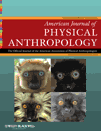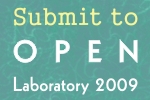The Primate Diaries
Perspectives on science, politics and history from a primate in the human zoo.
Profile
 Eric Michael Johnson has a Bachelors degree in Anthropology and a Masters in Evolutionary Anthropology. He pursued his PhD in Evolutionary Anthropology at Duke before joining the University of British Columbia to complete a doctorate in the History and Philosophy of Science.
Eric Michael Johnson has a Bachelors degree in Anthropology and a Masters in Evolutionary Anthropology. He pursued his PhD in Evolutionary Anthropology at Duke before joining the University of British Columbia to complete a doctorate in the History and Philosophy of Science.




Banner art is by Jeff Hebert.
See his portfolio at HeroMachine.
Search
Recent Posts
- The Primate Diaries Was Selected for The Open Laboratory
- Deconstructing Social Darwinism, Part III
- Christianity and the Death Penalty
- Bonobos and the Emergence of Culture
- Darwiniana: Notes on Evolutionary History
- Deconstructing Social Darwinism, Part II
- Vote Now! Neurophilosophy is Nominated for a Shorty
- A Gentle Reminder to Republicans
- Deconstructing Social Darwinism - Part I
- The Great Patriotic War in Sand and Sorrow
Recent Comments
- Omaha Steaks on The Giant's Shoulders #14
- Blackbird on The Primate Diaries Was Selected for The Open Laboratory
- dave souza on Deconstructing Social Darwinism - Part I
- ADB on Deconstructing Social Darwinism, Part III
- JL on Deconstructing Social Darwinism, Part III
- Christopher Dennis on Deconstructing Social Darwinism, Part III
- Christopher Dennis on Deconstructing Social Darwinism, Part II
- Michael Gersh on Bonobos and the Emergence of Culture
- mike on Bonobos and the Emergence of Culture
- dsi r4 on Deconstructing Social Darwinism - Part I
Publications
PROFESSIONAL

SEED
Survival of the Kindest
Sept. 24, 2009

The Open Laboratory 2007:
Best Science Writing on Blogs
The Sacrifice of Admetus

Discover
The Laughter Circuit
Vol. 23 No. 5 (May 2002)

Wildlife Conservation
Behind Enemy Lines
(November/December 2005)
________________________________________
ACADEMIC

Journal of Human Evolution
Sociality, ecology and relative brain size in lemurs.
JHE 2009 56(5):471-478.

American Journal of Physical Anthropology
Career or Family?: Maternal style and status-seeking behavior in captive bonobos (Pan paniscus).
AJPA 2008 135(S46):126

American Journal of Physical Anthropology
Lack of inbreeding avoidance and reduction of alliance formation in matrilineally- housed bonobos (Pan paniscus).
AJPA 2007 132(S44):137
Badges
Archives
- January 2010
- December 2009
- November 2009
- October 2009
- September 2009
- August 2009
- July 2009
- June 2009
Anthropology Blogs
- Afarensis
- Aardvarchaeology
- American Anth. Assoc. Blog
- Anna's Bones
- AnthroBlogs
- Anthropology.net
- Archaeozoology
- Bonobo Handshake
- Dieneke's Anthropology Blog
- Greg Laden's Blog
- John Hawks Weblog
- Kanyawara Chimpanzee Blog
- Living Links Center Blog
- Primatology.net
- Open Anthropology
- Savage Minds
Hist/Phil of Science Blogs
- Adv. in History of Psychology
- Dispersal of Darwin
- Ether Wave Propaganda
- Pauling Blog
- Time to Eat the Dogs
Evolution/Science Blogs
- A Blog Around the Clock
- Dispatches From Culture Wars
- Laelaps
- Michael Shermer
- Neurophilosophy
- Not Exactly Rocket Science
- Observations of a Nerd
- Pharyngula
- Sex At Dawn
- The Evilutionary Biologist
- The Frontal Cortex
- The Intersection
- The Loom
- The Panda's Thumb
- Thus Spake Zuska
- The World's Fair
Political/Social Blogs
About
My research background is in primatology and human behavioral ecology. This provides a worldview in which I see modern human behavior in the context of evolutionary history. In a similar way to how history and culture influence modern life due to the traditions that have accumulated over historical time, genetically influenced behaviors exist in humans and other primates that have developed over evolutionary time. However, since I am also well versed in cultural anthropology I am not a genetic determinist. Culture matters, but broad trends exist across cultures and across species that transcend this kind of learned behavior. My laboratory research has also included work in molecular neuroscience and phylogenetics, so while my interests are primarily "big picture" I have background and experience in how this plays out in the microrealm.
My main research focus has been on the great apes known as bonobos, or "pygmy" chimps. This critically endangered species is known for being remarkably peaceful and cooperative compared to their more aggressive chimpanzee cousins. Both are our nearest common ancestor and share more than 94% of our DNA. My thesis work focused on maternal behavior in dominant bonobo females. Since bonobos are a female dominated species there is great pressure on high ranking mothers to spend time grooming other females in their network. This is time consuming and means that mothers must sometimes make a choice between spending time focusing directly on their infants and spending time maintaining status in their social network. This work was presented before the American Society of Physical Anthropologists and published in the American Journal of Physical Anthropology as "Career or Family?: Maternal style and status-seeking behavior in captive bonobos (Pan paniscus)." I continued my research into primate behavior and evolution for my PhD work and subsequently published in the Journal of Human Evolution.
I am now pursuing my doctorate in the History and Philosophy of Science focusing on evolutionary biology. I am especially interested in how cooperation and morality were explained from an evolutionary standpoint ever since Darwin. The most important figure in this history is the Russian prince, naturalist and political radical Peter Kropotkin. He argued that cooperation between members of a group in the animal world is the norm rather than the exception and is a crucial factor in the evolution of social species, humans especially. Recent research, particularly in primates, has shown that cooperation is an integral part of their social lives and may be more important than competition in the evolution of our primate family. Nature "red in tooth and claw" may apply between different species, but helping others has been crucial in allowing our ancestors to survive.
This research may have important implications for our troubled modern world. In these pages I aim to explore the connections between science, politics and history from my unique vantage point as an anthropologist, a historian and a primate. Hopefully you'll enjoy the view from my perch. Feel free to contact me at [email protected].







